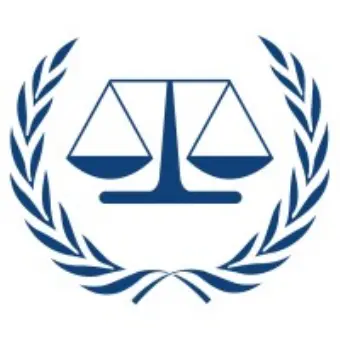Legal Officer (P-3)

International Criminal Court
Career Opportunities: Legal Officer (P-3) (24201)
24201 | SASP
| Deadline for Applications: | 30/11/2025 (midnight The Hague time) | |
| Organizational Unit: | Secretariat for the Assembly of States Parties | |
| Duty Station: | The Hague - NL | |
| Type of Appointment: | Fixed-Term Appointment | |
| Post Number: | T-3350 | |
| Minimum Net Annual Salary : | €90,402.00 | |
| Contract Duration: | Until 31/12/2025 |
A roster of suitable candidates may be established for this post as a result of this selection process for fixed-term appointments against both established posts and positions funded by general temporary assistance (GTA).
Organisational Context
The Secretariat (SASP) provides the Assembly and its Bureau and subsidiary bodies with administrative and technical assistance in the discharge of their functions under the Statute. The Secretariat provides substantive servicing of the Assembly and its subsidiary bodies. The substantive servicing functions include, inter alia, providing legal and substantive secretariat services, such as the provision of documentation, reports and analytical summaries, and supplying advice within the Secretariat on legal and substantive issues relating to the work of the Assembly.
Duties and Responsibilities
Under the supervision of the Director of the Secretariat for the Assembly of States Parties (SASP), the incumbent performs following duties:
- Assist in servicing the Assembly, the Bureau, Credentials Committee, the Committee of Budget and Finance, The Hague Working Group, and other serviced bodies, including the preparation of studies and documentation which may require legal analysis;
- Conduct legal research and analysis and prepare draft advice on legal questions, including the rights and obligations of States Parties, observer States and invited States, inter-governmental organisations and non- governmental organisations, relations with the host State, and the rights, privileges and immunities of staff;
- Prepare draft legal opinions for the approval of the Director, which includes analysis of legal issues taking into account the context and past/analogous practice;
- Provide draft legal advice for the consideration of the Director on substantive and procedural issues related to the duties of the States Parties, credentials of representatives, relations with the host State, interpretation of draft amendments to the Statute and the rules of procedure of organs, conferences and other bodies;
- Support the Director in follow up to resolutions of the Assembly, Bureau or subsidiary bodies and propose course of action and timeframe;
- Take notes of discussions, summarise different approaches and prepare draft reports and draft studies for the clearance of the Director ensuring balanced reflection of different views in clear and concise language;
- Draft correspondence and letters/notes taking into consideration relevant background documents for the consideration of the Director;
- Perform ad hoc tasks as requested by supervisors.
Essential Qualifications
Education:
An advanced university degree in law, preferably with specialization in international, business or humanitarian law. A first-level university degree in combination with two additional years of qualifying experience is accepted in lieu of the advanced university degree.
Experience:
A minimum of five years (seven years with a first-level university degree) of progressively responsible professional experience in international law, either in an international organization or in national service.
Knowledge, skills, and abilities:
Familiarity with the norms and procedures governing the Assembly, intergovernmental negotiations and international relations;
Understanding of the inter-governmental process;
In-depth knowledge and practice of international, business or humanitarian law, including human rights law.
Knowledge of the application of international legal instruments;
Experience in applying legal expertise to complex, practical issues requiring innovative and creative solutions; Strong research and analytical skills and ability to conduct comprehensive research on a range of issues; Proficiency in legal writing and expression, and ability to prepare legal opinions, summaries of discussions, draft reports on proceedings, and a variety of related documents;
Good understanding of contemporary international relations, international organisations and their interrelationships;
Excellent drafting skills including letters;
Excellent inter-personal skills to contact and maintain a good working relationship with the representative of States, members of the Bureau, members of subsidiary bodies of the Assembly, relevant staff of the Court; Demonstrated planning and organisational skills and ability to work to tight deadlines and handle concurrent projects;
Ability to perform multitasking under pressure when so required, including long working hours;
Attention to detail when drafting, summarizing and reviewing;
Proficiency in computer skills and ability to use relevant software applications, in particular information databases, internet/intranet services, library sources etc.;
Ability to establish and maintain effective working relations with people of different national and cultural backgrounds with respect for diversity.
Knowledge of languages:
Fluency in one of the working languages of the Court, English or French, is required. Knowledge of the other working language of the Court is desirable. Knowledge of another official language of the Court (Arabic, Chinese, Russian and Spanish) is considered as asset.
Candidates appointed to posts at a P-5 grade or in the Director category are subject to a maximum aggregate length of service of seven years. This is pursuant to a decision of the Assembly of States Parties (ASP Resolution ICC-ASP/23/Res.2 - ICC-ASP-23-Res.2-ENG) to implement a tenure policy at the Court as of 1 January 2025.
- The selected candidate will be subject to a Personnel Security Clearance (PSC) process in accordance with ICC policy. The PSC process will include but will not be limited to, verification of the information provided in the personal history form and a criminal record check.
- Applicants may check the status of vacancies on ICC E-Recruitment web-site.
- Post to be filled by a national of a State Party to the ICC Statute, or of a State which has signed and is engaged in the ratification process or which is engaged in the accession process. This is pursuant to a decision of the Assembly of States Parties (ASP Resolution ICC-ASP/23/Res.3 - ICC-ASP-23-Res.3-ENG) to introduce a moratorium on the recruitment by the ICC of staff of non-States Parties’ nationality.
- In accordance with the Rome Statute, the ICC aims to achieve fair representation of women and men for all positions, representation of the principal legal systems of the world for legal positions, and equitable geographical representation for positions in the professional category.
- Applications from female candidates are particularly encouraged.
- The International Criminal Court applies the Inter-Organization Mobility Accord and can support secondment of staff from organizations of the United Nations Common System.


